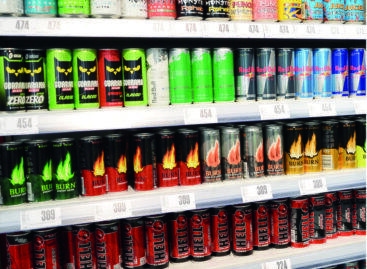Farmers benefit from the amendment to the Nitrate Regulation
The amendment to the regulation on the detailed rules of the action program for the protection of waters against nitrate pollution from agricultural sources and on the procedure for data provision and registration has been published. The regulation, which entered into force on July 30 – which was advocated by the National Chamber of Agriculture – provides farmers with assistance in effective farming on several points.
 The National Chamber of Agriculture has initiated the amendment of the 59/2008. (IV.29.) FVM Decree (nitrates decree) on several occasions, as the regulation contained an element that was unfavorable in several points and also caused a competitive disadvantage for Hungarian farmers. As a result, the decree was first amended in the fall of 2021, allowing for the extension of the winter fertilization period. The NAK also indicated that the maximum application doses included in Annex 3 to the decree are low. In many cases, in areas with good agricultural potential and sensitive to nitrates, the nitrogen uptake of plants would be much higher than the previously permitted maximum values. This means that the genetic potential of plants cannot be fully exploited while adhering to the values set out in the law.
The National Chamber of Agriculture has initiated the amendment of the 59/2008. (IV.29.) FVM Decree (nitrates decree) on several occasions, as the regulation contained an element that was unfavorable in several points and also caused a competitive disadvantage for Hungarian farmers. As a result, the decree was first amended in the fall of 2021, allowing for the extension of the winter fertilization period. The NAK also indicated that the maximum application doses included in Annex 3 to the decree are low. In many cases, in areas with good agricultural potential and sensitive to nitrates, the nitrogen uptake of plants would be much higher than the previously permitted maximum values. This means that the genetic potential of plants cannot be fully exploited while adhering to the values set out in the law.
In order to prove this, the Ministry of Agriculture – with the support of the National Chamber of Agriculture – set up a small-plot long-term experiment at four locations between 2018 and 2023 at the Soil Science Institute of the Agricultural Research Centre, and examined the risk of leaching of different doses of nitrogen active ingredients at eighty locations/fields at the farm level. NAK and KITE also provided entrepreneurial farmers to carry out the farm experiments, who were able and willing to participate in the experiment lasting 4-5 years.
The results of the experiments showed that it is advisable to increase the maximum nitrogen active ingredient values that can be applied to winter wheat, corn, sorghum, sunflower, rapeseed, sugar beet, spring barley, winter barley, and silage corn on soils with poor, medium, and good nitrogen supply in order to absorb a larger amount of nitrogen. Accordingly, the amendment of Annex 3 to Decree 59/2008. (IV. 29.) of the Ministry of Agriculture and Rural Development became justified. The new regulation entered into force on July 30.
Thanks to the amendment to the decree, the amount of excess nitrogen that can be applied to prevent the so-called pentosan effect does not have to be included in the maximum amount of nitrogen that can be applied to plants, which is determined differently for each growing location, as set out in Annex 3 of the Nitrate Decree. In addition, in order to promote the decomposition of stem residues, farmers do not have to plan sowing within 15 days of applying nitrogen after harvest.
Related news
Not a turnaround, but consolidation: an agricultural outlook for 2026
🎧 Hallgasd a cikket: Lejátszás Szünet Folytatás Leállítás Nyelv: Auto…
Read more >Labeling rules for energy drinks have become stricter: they can only be marketed with clear labels
🎧 Hallgasd a cikket: Lejátszás Szünet Folytatás Leállítás Nyelv: Auto…
Read more >Related news
40 secure jobs, sustainable solutions – new BURGER KING® in Csepel
🎧 Hallgasd a cikket: Lejátszás Szünet Folytatás Leállítás Nyelv: Auto…
Read more >From ham to egg dye – comprehensive Nébih inspection continues until Easter
🎧 Hallgasd a cikket: Lejátszás Szünet Folytatás Leállítás Nyelv: Auto…
Read more >From routine to ritual
🎧 Hallgasd a cikket: Lejátszás Szünet Folytatás Leállítás Nyelv: Auto…
Read more >








